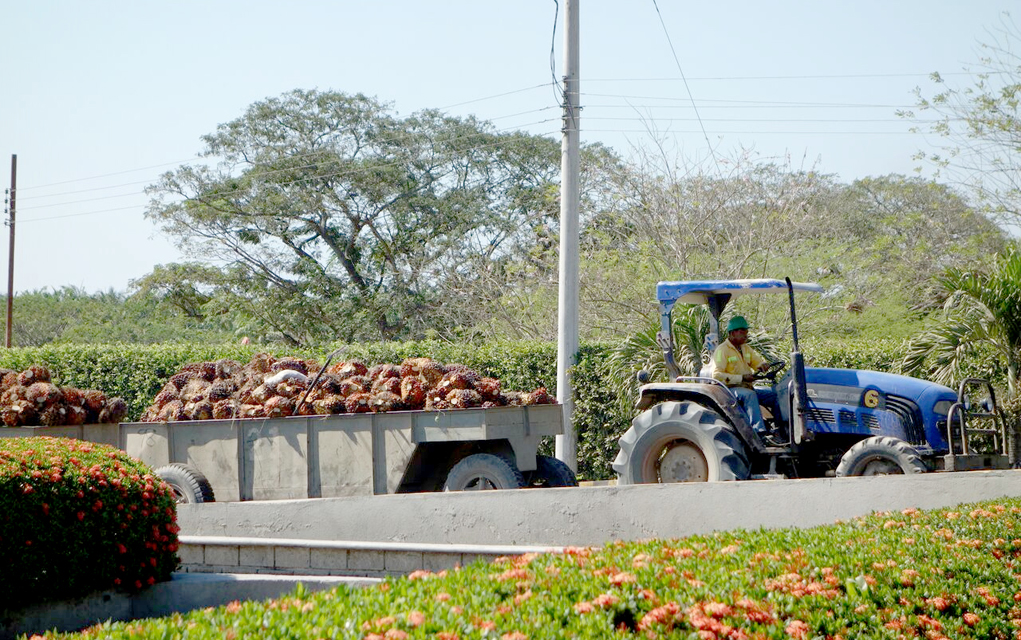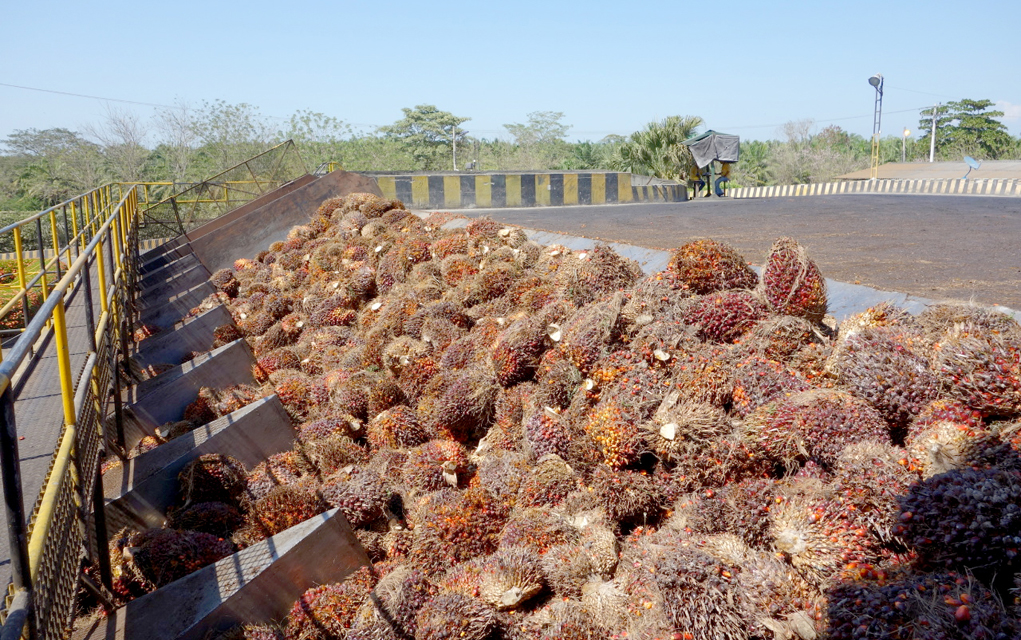
In recent years, a wave of companies have committed to improving the way they source one of the world’s most popular, most environmentally destructive, most socially irresponsible ingredients — palm oil. But behind the scenes, proponents of sustainable palm oil, including important players here in Boulder, are still struggling to rein in the global industry.
Some advocates say that’s partly because the Roundtable on Sustainable Palm Oil (RSPO), formed in 2004 to develop global standards and a certification process called Certified Sustainable Palm Oil (CSPO), isn’t doing a good enough job. Rainforest Action Network (RAN), a major watchdog working to transform the industry, says the RSPO is leaving far too many forests and indigenous peoples vulnerable to the consequences of industrial-scale palm oil production.
“Basically it all comes down to how you define a forest, how you define a forest that will be protected and how you define a forest that can be used for palm oil,” says Gemma Tillack, director of RAN’s agribusiness campaign and palm oil programs. “Within the palm oil industry this is a very hot debate.”
And it’s a massive industry. The fruit of the oil palm tree is a far more efficient producer of oil than many other seeds, fruits and nuts, yielding up to 10 times more oil than other popular sources on the market. According to the World Wildlife Fund, palm oil is used in more than 50 percent of all packaged supermarket products in the U.S. It accounted for more than 55 percent of total edible oil exports in 2012, and was the world’s most consumed oil or fat in the same year.

According to RAN, U.S. palm oil imports increased 485 percent between 2002 and 2012. And global palm oil consumption has ballooned: The European Palm Oil Alliance says the world used just 17.7 million tons of it in 1997 and 52.1 million tons by 2012, with research predicting the market will more than double again by 2022, reaching 128 million tons. Half the world’s palm oil supply is now produced in Indonesia — the country some recent studies say has the highest rate of deforestation on the planet. Another 35 percent is produced in Malaysia, with smaller centers of production in parts of South America and Africa. This rapid expansion has wreaked havoc on rainforests and peatlands, critical to preserving biodiversity and regulating the Earth’s atmosphere; the sheer scale of deforestation in Indonesia, much of it for industrial palm oil plantations, makes the country the world’s third-largest emitter of carbon dioxide. And all too often, the industry’s practices are fraught with human rights violations, such as underpaying workers, the use of forced labor and human trafficking.
Additionally, in places like Indonesia, where rainforests are often a patchwork of ages and types, the RSPO standards protect primary forests while leaving many areas of young, regenerative secondary forest vulnerable to clear-cutting. RAN says that in the RSPO’s most recent review of its certification process, the group failed to include a key requirement to protect secondary forests, and also failed to protect shallow peatlands — which store vast amounts of CO2 and methane, another potent greenhouse gas, in their soil. Even with its weakened standards, RAN says the RSPO has a poor track record of enforcing compliance among its membership. Although notably, RSPO recently suspended IOI Group, a Malaysian palm oil producer and RSPO member, for a string of violations.
With RSPO failing to meet sufficiently high standards, RAN and other partners have put in place the Palm Oil Innovation Group (POIG), designed to raise the bar of the RSPO and prove that truly sustainable palm oil is possible. The POIG charter, according to its website, “outlines leading standards for protecting forests, peatlands, biodiversity and carbon, whilst upholding the rights of local communities and workers, and improving livelihoods for local communities.” The focus of the POIG, RAN’s Tillack makes clear, is to fortify the RSPO process, not to replace it.
“We want to get the RSPO to strengthen its standards so that they include provisions to protect all forests, protect all peatlands and protect human rights,” she says.
The POIG partners with progressive palm growers and corporate champions of sustainable palm oil, including locally renowned Boulder Brands. Although it’s a relatively small consumer of palm oil, Boulder Brands became the first manufacturer to support the POIG in 2014 and plays a leading role in the effort to clean up the massive industry. In fact, Tillack says Boulder Brands has adopted the strongest palm oil policy of any company in the market today.
Adriane Pilcher, marketing director for Earth Balance at Boulder Brands — the product line with the largest palm oil demands, at about 20 million pounds per year — says it’s an important ingredient with clear benefits when it’s produced responsibly.
“We partnered with POIG because they’re really the gold standard and set the highest bar in the industry,” Pilcher says. “We committed for Boulder Brands sourcing to align with the POIG charter, and that’s what we are striving to adhere to.”
In early 2015, Boulder Brands publicly announced its goal to source 100 percent of its palm oil from sustainable sources, vetted by POIG, by the end of the year. But even for a company that needs just 0.05 percent of the world’s palm oil, the 100 percent goal remains out of reach. Its supplier in Colombia, Daabon, recognized as a leader in sustainable palm oil production, provides Boulder Brands with 100 percent-certified sustainable and organic palm oil. As for its supplier in Southeast Asia (who Pilcher won’t name), Pilcher says they’re still “on a journey” toward 100 percent sustainable.
“The availability of POIG compliant palm oil right now is limited to a few suppliers in South America,” Pilcher says. “Creating big change is going to come from (POIG) bringing on more big growers and suppliers … so that more companies can source responsibly.”

WhiteWave, a Broomfield-based company that uses palm oil in a number of its product lines, is committed to the RSPO process, but not to POIG. Matt Hargarten, director of communications at WhiteWave, says sustainable palm oil fits into the company’s commitment to cultivate a better food system.
“We embrace our role as a food manufacturer in adopting practices that address critical issues within the palm oil sector, as well as the role of our supply chain partners in this commitment,” Hargarten says. “We are proud to source 100 percent Certified Sustainable Palm Oil (CSPO, the RSPO certification) for all of our liquid creamer products, a commitment we made back in 2010 that was achieved by 2012, three years ahead of our 2015 commitment target.”
On July 26, WhiteWave announced its commitment to meet the “RSPO NEXT” criteria by 2020. RSPO NEXT is simply a “voluntary addendum” to the existing RSPO process, Tillack says, and it allows companies to buy credits for better palm oil practices rather than actually changing its sourcing.
“Our reflection is that (RSPO NEXT) will not work,” Tillack says. “It doesn’t apply to actual palm oil. It’s more like a carbon-trading sort of tool… From RAN’s perspective, it falls short.”
Hargarten, however, says WhiteWave sees RSPO NEXT criteria as complimentary to POIG, and it will hold the company to a similar commitment. He says WhiteWave is “committed to affecting the actual palm oil supply chain where possible,” and will require its suppliers to comply with RSPO NEXT by 2020.
WhiteWave’s impending acquisition by the French giant Danone, presuming it goes through as expected, may actually improve WhiteWave’s palm oil practices. Danone, a member of POIG, has a strong palm oil policy that requires no deforestation, no peat destruction and no human exploitation. And in an interesting twist, the recent acquisition of Boulder Brands by Pinnacle Foods may put its leadership in sustainable palm oil at risk. Pinnacle Foods, Tillack says, has no palm oil policy.
The complex palm oil policy landscape can be tricky for consumers to understand. And unfortunately, the heavy toll on rainforests, the impact on the climate and the human rights concerns, coupled with steadily growing demand, mean that palm oil stakes are high.
“This is a sector that really needs a lot of market pressure to transform it,” Tillack says. “The time is now.”














